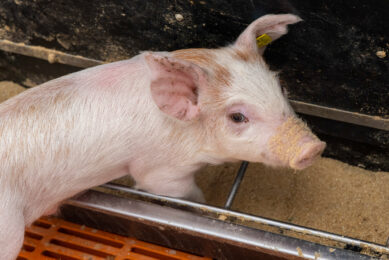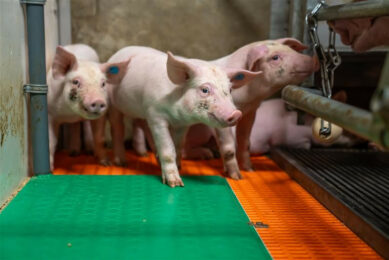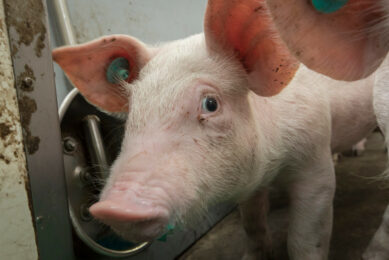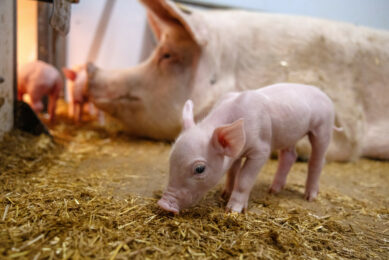How does maternal behaviour impact piglet emotionality?
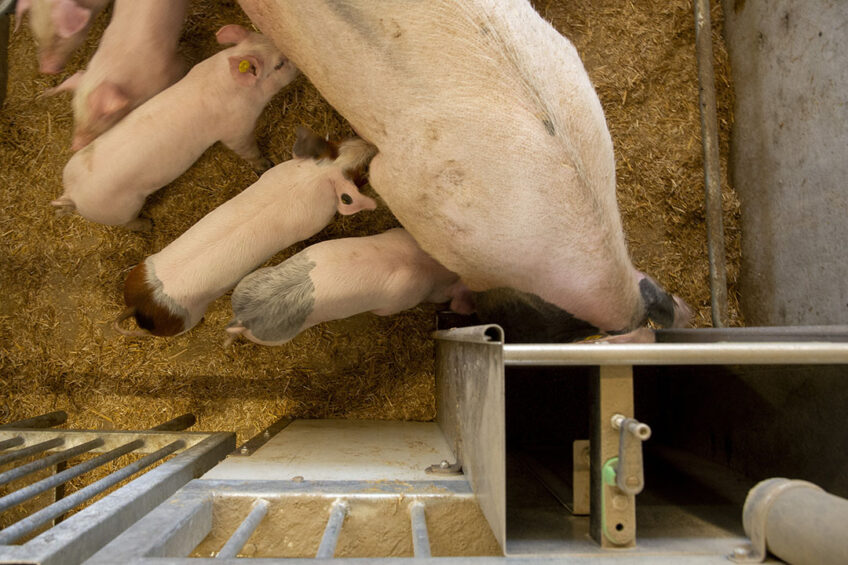
Researchers from Brazil and Sweden investigated how the maternal environment of pregnant sows and the occurrence of stereotypies impact emotionality in piglets.
The expression of sow stereotypic behaviour during pregnancy affects the emotionality in her offspring. Emotions are intrinsically related to welfare. Therefore, improving maternal welfare during gestation improves piglet emotionality and welfare through foetal programming.
The expression of stereotypies can be regulated by providing environmental enrichment, such as modification of housing conditions, and providing greater stimuli to allow animals to express natural behaviour. However, the extent to which stereotypic maternal behaviour affects the epigenome of brain regions involved in emotionality in the offspring is unknown.
Data collection
The researchers divided 60 sows in the final trimester of gestation into 2 treatment groups. All pens had conventional concrete structures and concrete floor. The first group had an enriched environment supplied with hay from day 90 to the end of the gestational period. The second group had an original, barren environment and direct contact with the concrete floor.
The team then selected 36 sows randomly selected from both treatment groups and assigned them to brain epigenome experiments. These sows were the mothers of the piglets used later in the study. Before parturition, the team transferred the sows to conventional farrowing crates, where they stayed during lactation. Therefore, all piglets experienced the same environment from birth to the end of the experiment.
Piglets were weaned at 28 days of age and vaccinated. From each of the 36 pre-selected sows, the researchers assessed one pair of piglets for the second part of the experiment. After weaning, the 72 piglets were kept in conventional nursery pens. The team collected brain tissue samples from 1 male piglet randomly selected per sow, as they were slaughtered. The researchers measured the epigenetic effects of the prenatal environment by analysing the methylomes of the amygdala, the frontal cortex, and the hippocampus of weaned piglets.
Maternal environmental enrichment may impact hippocampus-related functions such as short-term memory and learning
DNA methylation comparison
The team observed DNA methylation differences between contrasts in the amygdala, the hippocampus, and the frontal cortex. The hippocampus is a major component of the brain associated with learning, short-term memory, and emotional regulation. It is susceptible to damage by environmental stimuli. The hippocampus showed the highest number of differentially methylated regions followed by the frontal cortex. This suggested that the hippocampus is sensitive to maternal environmental enrichment. Therefore, maternal environmental enrichment may impact hippocampus-related functions such as short-term memory and learning.
Amygdala
On the other hand, the amygdala showed the lowest number of combined differentially methylated regions. This suggested that it would primarily respond to the expression of maternal stereotypic behaviour. The amygdala plays a role in threat detection, fear response, and memory related to emotions. In addition, maternal stress and behaviour due to social mixing with unfamiliar pigs during gestation enhances the expression of the corticotropin releasing hormone mRNA in the amygdala of the piglets. This indicates neurobiological propensity for anxiety-related behaviour.
Furthermore, in piglet brains, DNA methylation changes associated with maternal stereotypy are independent of DNA methylation changes related to maternal environmental enrichment. Therefore, separate molecular pathways are affected by maternal environment and occurrence of stereotypies. Both maternal environmental enrichment and stereotypic behaviours during gestation differentially affected genomic regions in piglets’ brains in relation to gene function.
Conclusions
The authors concluded that while the epigenome of the hippocampus and frontal cortex of piglets is mainly affected by the maternal environment, the epigenome of the amygdala is mainly affected by maternal stereotypies. In addition, the molecular pathways and mechanisms triggered in the brains of piglets by maternal environment and stereotypic behaviour are different.



